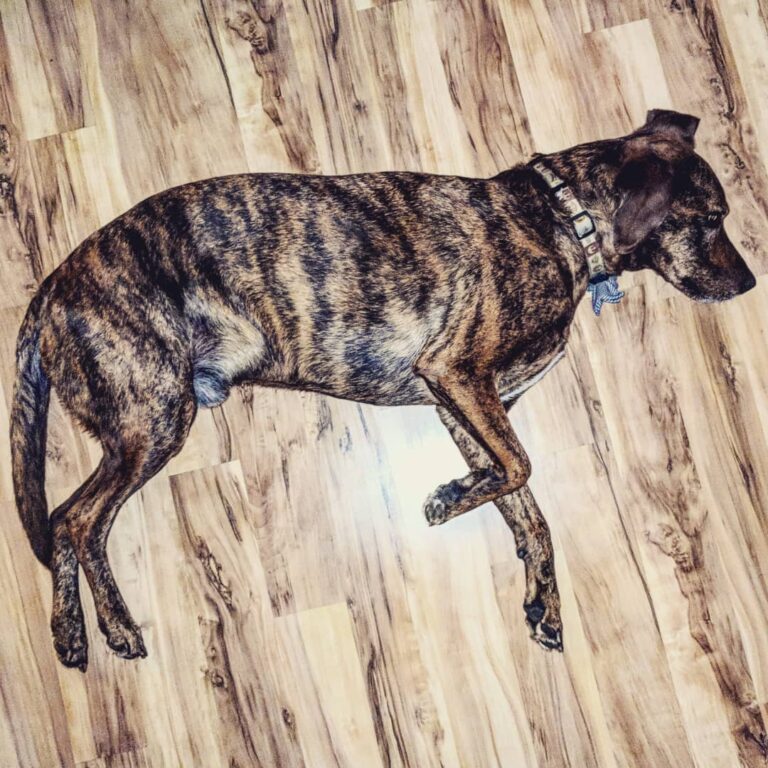Melatonin for Dogs: A Lot More Than a Good Night’s Sleep
Melatonin is a naturally released hormone that both dogs and humans produce. Secreted by the pineal gland, it helps our bodies manage sleep cycles and reduce stress. However, there are times that our bodies do not produce enough melatonin or it is not released when needed. Due to this, some opt to take a melatonin supplement daily until they return to a healthy sleeping pattern. In the same manner, through the consultation of a veterinarian, melatonin can be prescribed to induce sleep and reduce anxiety.
Melatonin may be one of the most important substances in your dog’s body. Melatonin for dogs along with lignans, does not only aid with sleep but can avert a wide array of diseases and is known to alleviate hormonal imbalances in the body. It is a natural way to treat Cushing’s disease and alopecia. It diminishes the symptoms that come with Cushing’s, providing minimal side effects as opposed to using other pharmaceutical drugs.
Read on to explore the benefits and dosage of melatonin for dogs and why you should talk to your local veterinarian to see if it works for your furry friend.

Benefits of Melatonin for Dogs
Melatonin emitted by the pineal gland enters each cell in the body and can even carry through the blood and brain barrier. It is also sourced from the salivary glands, esophagus, stomach lining, and intestinal lining. This explains why melatonin can help with other parts of the body and not just with sleep issues.
The naturally occurring hormone plays a key aspect in supporting your dog’s overall wellbeing. Melatonin insufficiency can make your dog more prone to inflammation and a weaker immune system, making it more susceptible to chronic diseases. It is essential to maintain your dog’s melatonin levels for it to live a healthy life.
Sleep issues
Insomnia is the incapacity to fall, stay, and sleep deeply. A succession of sleepless nights can cause multiple issues during the day such as the build-up of anxiety and feelings of sluggishness.
Dogs who suffer from sleeping disorders such as insomnia often display cognitive dysfunctions that can disturb their natural sleep patterns, which can lead to a lower immune system and are prone to health issues. Because of this, pet owners may use melatonin to help their dogs get the proper rest they need to stay alert and strong.
Cushing’s disease
Cushing’s disease arises when your dog produces high levels of the hormone cortisol. Normal degrees of cortisol balance a dog’s response to stress and helps protect the immune system. An abundance of cortisol on the other hand can lead to low energy levels, weak muscles, and skin issues.
Melatonin has been proven to help dogs with Cushing’s disease caused by a tumor on their pituitary gland by hindering the excess production of cortisol. Since melatonin is a natural supplement, most veterinarians recommend a melatonin-based treatment before choosing other drugs which could cause severe side effects when combined with other medications used by senior dogs.
Separation anxiety
It’s true that a dog is man’s best friend. They love being around us at all times. So when we have to leave them at home alone while we go off to work or to do errands, dogs can suffer from separation anxiety.
Studies show that an estimated 70% of dogs experience anxiety or behavioral issues when left by themselves. While other dogs are more prone to experience stress due to situations such as fireworks, thunderstorms, or even car rides. Melatonin has been found very effective in treating a dog’s anxiety and helping them stay calm should they find themselves in a stressful situation.
Skin issues and hair loss
Skin disorders and hair loss associated with alopecia can come about regardless of the age of your dog. Allergies, changes in diet and weather can also be contributing factors to these conditions that cause irritation, inflammation and itchiness. Melatonin is prescribed to dogs to help them grow back their shiny coat. It serves as a gentle solution that can soothe the skin and promote hair growth.
Proper melatonin dosage for dogs
You will need to set up a veterinarian appointment to discuss the right melatonin dosage for your furry friend. Do not decide on the dosage yourself especially if your dog has underlying health issues and is taking other prescribed medication to avoid any untoward reactions.
Most melatonin supplements have a list of ingredients that are generally safe for your dogs. The amount of melatonin is dependent on the dog’s weight. A general basis is 1 milligram of melatonin for dogs under 10 pounds. Dogs that weigh between 10 and 25 pounds can have 1.5 milligrams. Twice the amount of melatonin or 3 milligrams will work for dogs above 30 to 100 pounds.
Weight is not the sole factor to determine your dog’s dosage. Older dogs, for example, may be prone to health issues due to their age and may have other pre-existing conditions, so do not administer melatonin without receiving the go signal of your medical care practitioner.
Melatonin works well mixed with your dog’s food which can come in both powder, capsule, or liquid form. It generally takes about 15 to 20 minutes for melatonin to work if it is used to treat anxiety and insomnia, so it might be wise to treat your dog close to bedtime.
In Closing
Melatonin moderates your dog’s sleep cycle and improves their temperament as they deal with anxiety associated with separation and outside situations. It also serves as an antioxidant to protect your dog’s internal organs from chronic diseases and balances your dog’s hormones to regulate the effects of Cushing’s, hair, and skin issues. Always consult your local veterinarian for the right melatonin dosage.
Melatonin for dogs is a natural solution that presents minimal side effects and helps provide the comfort and relief your dog deserves to lead a long, and happy life.







